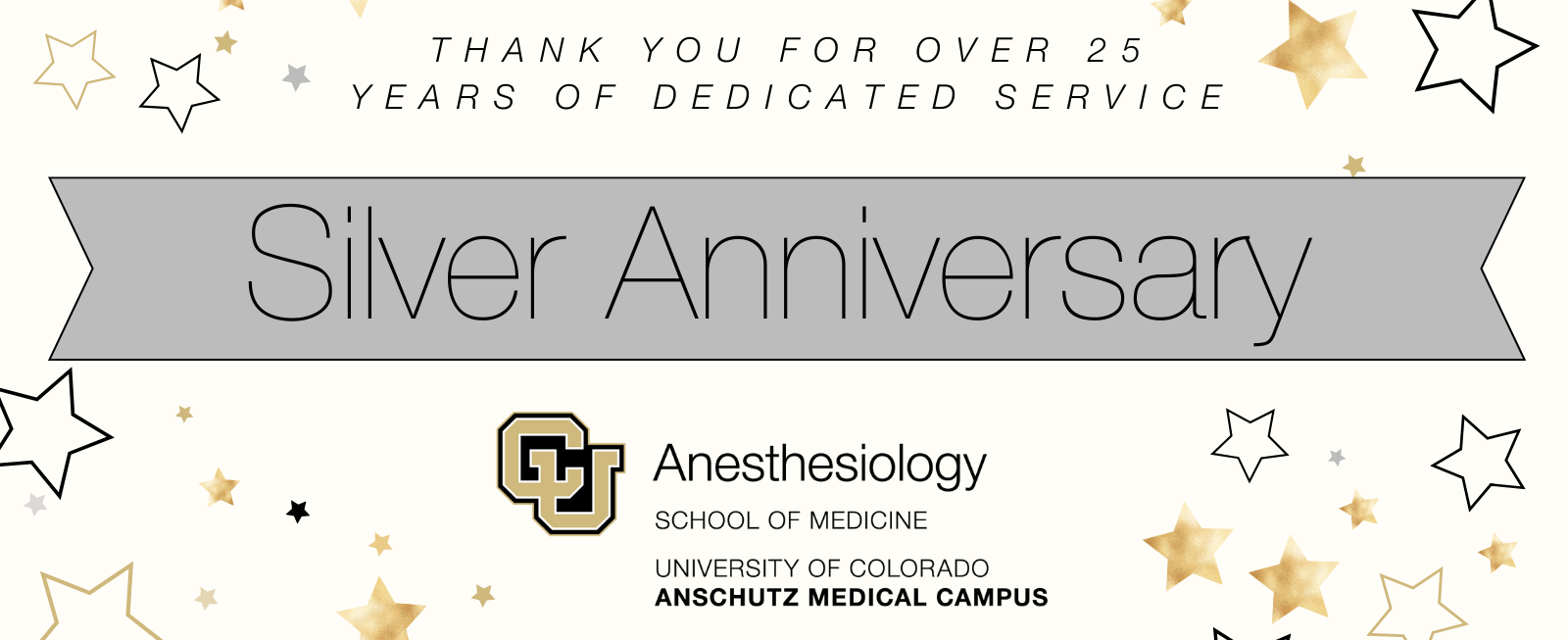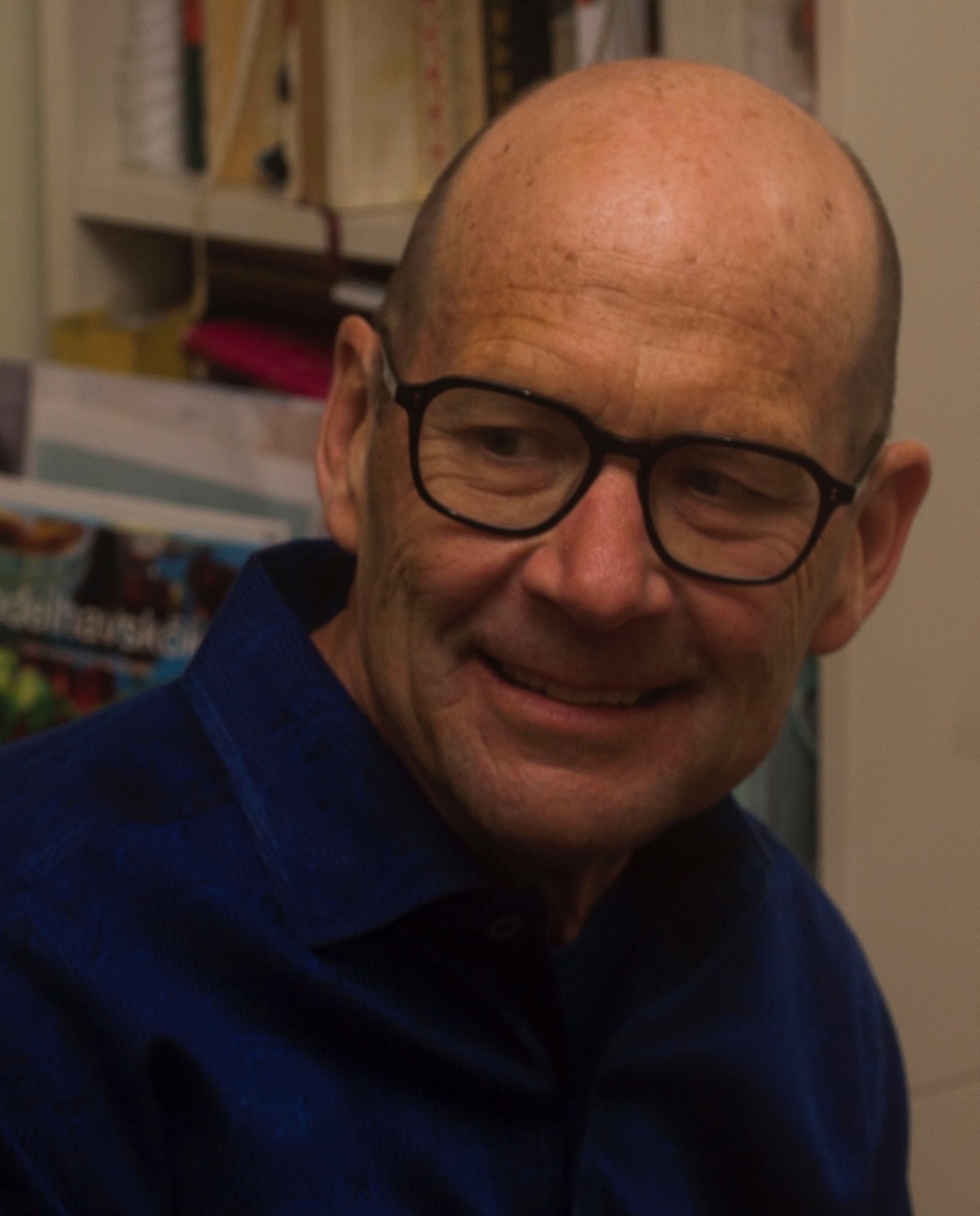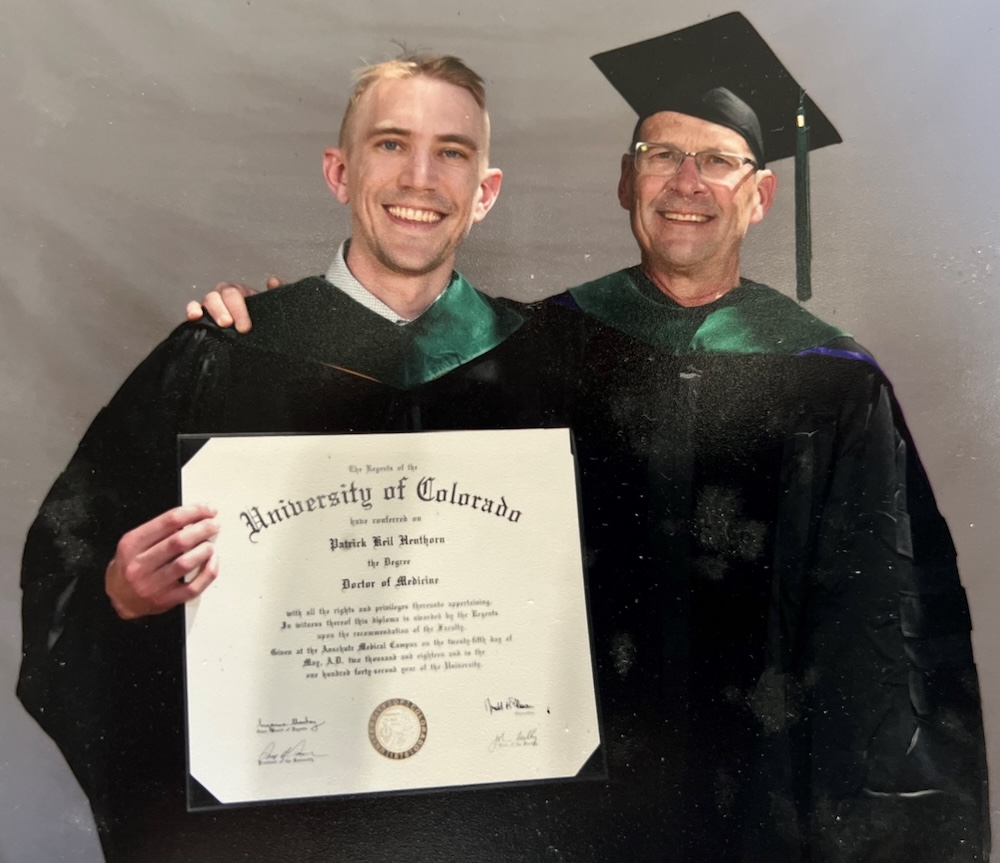Silver Recognition - Inspiring others for 25 years: Thomas Henthorn, MD
Apr 3, 2024
Few stories of following one’s interests resonate as strongly as that of Professor Thomas K. Henthorn, MD, whose career in Anesthesiology and Pharmaceutical Sciences serves as a testament to the pursuit of new knowledge to forge a meaningful career. He exemplifies the power of embracing curiosity and the profound impact of timely mentorship in shaping one's journey.

As a medical student at Northwestern University with an intention to practice internal medicine, Dr. Henthorn found his calling in an unexpected area. What was intended to be a traditional exposure to numerous medical specialties turned into a life-changing experience when he encountered anesthesiology.
As he described, “It was the only time I felt an irresistible urge to wake up and go to the hospital, I was excited to learn and participate in anesthesiology.” This initial encounter led him to pursue another rotation in the specialty, confirming his new trajectory and setting the stage for a remarkable career.
Prompted by a mentor’s advice, Dr. Henthorn's path was notably influenced by his engagement with clinical pharmacology during his senior year of medical school, prompted by a mentor’s advice. This exposure not only solidified his interest in anesthesiology but also introduced him to the world of research through a T32 Clinical Pharmacology Fellowship at Northwestern. With continued strong mentorship his pursuit of a career in research led him to the prestigious Karolinska Institute in Stockholm for further postdoctoral work in clinical pharmacology, supported by the Fogarty International Center at the NIH.
Despite securing NIH research funding and ascending to the role of Associate Chair for Research at Northwestern, Dr. Henthorn faced significant workplace challenges there. A strategic shift in departmental priorities prompted him to seek a more supportive research environment. His search led him to CU, where long-time Dean Richard Krugman, MD and Department Chair Charlie Gibbs, MD shared his commitment to creating space and opportunities for collaboration to nurture investigator-led anesthesiology research.

Dr. Henthorn’s work on the physiological basis of pharmacokinetics creates mathematical models that predict how differences in physical characteristics, disease states, and genetic variability, affect drug behavior in the body. Applying these models results in anesthesia practices that ensure patients receive safe and effective care before, during and after surgery. Far from graph paper and calculators (early methods of analysis in this field), his research incorporates both SAAM II and Phoenix NMLE, computational tools used for pharmacometric analyses. This software can be used to characterize how drugs behave in the body, particularly in specialized populations and under specific conditions thereby providing guidance to providers to more precisely administer anesthetic drugs to optimize their safety and efficacy. guidance to.
After serving as Department Director of Research for two years, Dr. Henthorn was Department Chair from 2000 – 2016. Under his tenure, CU’s Anesthesiology department experienced remarkable growth and innovation. From introducing the first NIH grant to the department to significantly expanding both clinical faculty and research initiatives, the department achieved national recognition. A strong advocate for institutional and international research collaboration, his fostering of a supportive research environment continues to this day.
As an early case in point, Dr. Henthorn's focus on clinical pharmacology led to his recruitment of Uwe Christians, MD, PhD and the subsequent formation of the iC42 research lab. This lab introduced mass spectroscopy to the Anschutz Medical Campus. This innovation has established iC42 as a powerhouse of collaboration across the medical center and worldwide.

Dr. Henthorn envisions a future where anesthesiology research, particularly in personalized medicine and pharmacogenomics, continues to evolve. His recent contributions to the study of cannabis and ketamine highlight the critical role of precision in understanding drug exposure to enhance patient care and pioneer new treatment strategies. Moreover, the quest for novel anesthetic agents, fueled by research and innovation, will likely expand the horizons of future boundaries of what is possible in patient care.
Dr. Henthorn's journey is a powerful example of the impact that dedication and the willingness to explore new paths can have on one's career and the broader medical community. His contributions to anesthesiology and clinical pharmacology have not only advanced those fields but also inspired countless others to pursue these interests. As we celebrate his achievements, we are reminded of the endless possibilities that lie at the intersection of passion, innovation, and collaboration.
Dr. Henthorn - from all of us - congratulations on 25 years at CU!